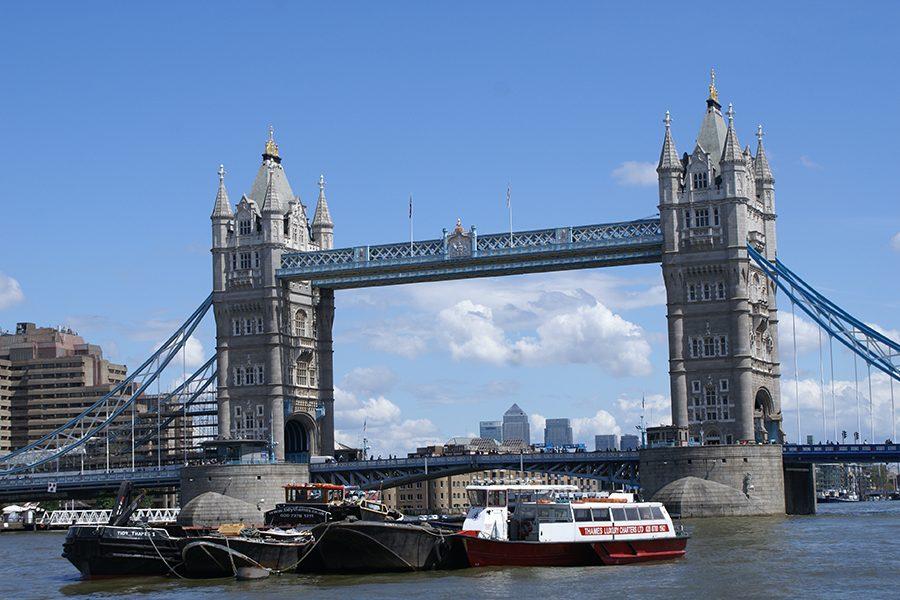The Tower Bridge.
‘Afraid is the Wrong Answer’
Classes continue to travel despite danger all around
April 22, 2016
School trips may be exciting, but the dangers add up after travelers leave the airport. World events can add to how stressful a trip may be.
“I have to go through another door in the airport and have a cross put on my passport,” Spanish teacher Maria Cruz said. “The cross on my passport means that I have to be searched because there is someone out there that is wanted that has the same exact name as me.”
Cruz continues to take students around the world despite the addition of the cross.
“I’m planning two trips in 2017 to Europe and Costa Rica,” Cruz said. “I’ve been all over Europe as well as Mexico with students. Increased airport security has been a hassle for me and my students.”
Cruz said that the cross is only one of the causes for setbacks during the trips.
“We’ve had heavy pickpocketing in France,” Cruz said. “They stole three girls’ purses, passports and money from another school’s group so the girls had to go to the U.S. embassy and get temporary passports.”
The country’s general population is one of the key factors in trip safety.
“There was this big sports event when we were in Paris that happened and there was this huge celebration, so I’m guessing they won because just about everyone started going wild,” Rider graduate Bailey Gutierrez said. “People were on their motorcycles and sitting in their cars just honking their horns everywhere.”
This sporting event was the Six Nations Rugby Championship.
“There were people screaming and running into the subway holding flags, everyone was celebrating except us because we didn’t know what was going on,” Gutierrez said. “I was almost run over by a guy that was speeding, I’m guessing that he was drunk. I don’t think they have a lot of traffic laws. Crossing the street was one of the most dangerous things I’ve done because I’m not very careful.”
Journalism teacher Mary Beth Lee said it’s “not unusual to feel tension in big, metropolitan cities.”
“I took two of my former editors with me to Europe with some other adults. Last year we went to Paris, Switzerland and Germany,” Lee said. “Paris was really different, I’ve been there before two other times. This time there was this different feeling in the air.”
The school’s tour company, EF tours, tries to keep students out of dangerous areas.
“EF tours said that we weren’t going to the Eiffel Tower,” Lee said. “We were going to watch it light up, but they didn’t want us to go to the actual tower and walk around there.”
EF tours kept students away from the Eiffel tower because of two local terrorist attacks.
“My group was a small group, so we would leave the tour guide and do our own things in Paris,” Lee said.
“A couple of times, when we were out there, there were police, and we constantly heard sirens,” Lee said. “We saw a bunch of police cars in rows. There were big police vans and heavily armed police officers. We didn’t know what was going on, but we definitely knew something had happened.”
After arriving back in the United States, Lee heard “people talking about staying away from Europe.”
“If you have always wanted to travel around and see the world and you don’t go because you’re afraid, you’re letting the terrorists win,” Lee said. “Letting the terrorists run us by making us afraid is the wrong answer.”
